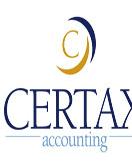Each year everyone who is employed has to pay the UK income tax. The amount of income tax to pay each year depends on how much of this falls within each tax band and how much of your income is above the Personal Allowance.
If you are an employed or you have a pension you will need to check your income tax to see how much tax you’ve paid in the current tax year and how much you are likely to pay for the rest of the year. Also, you will need to see your Personal Allowance and tax code.
For savings and dividends allowance you will have tax-free allowance for saving interests and dividends if you own shares in a company. You pay tax on any interest or dividends over your allowances.
Depending on your circumstances you may be able to claim Income Tax reliefs.
If you are in a civil partnership or married you might be able to claim for Marriage Allowance to reduce the amount of tax on your partner’s income tax than the standard Person Allowance.
UK tax Rates 2016/17
From 6 April 2016 to 5 April 2017 the Personal Allowance was £11,000.
Tax Rate Personal Allowance
Basic Rate – 20% £0 to £32,000
Higher Rate – 40% £32,001 to £150,000
Additional Rate – 45% Over £150,000
UK tax Rates 2017/18
Here are the UK tax rates for 2017. The Personal Allowance has gone up by £500 and now it is £11,500.
Tax Rate Personal Allowance
Basic Rate – 20% £0 to £45,000
Higher Rate – 40% £45,001 to £150,000
Additional Rate – 45% Over £150,000
If you live in Scotland, then you will have to pay the Scottish Income Tax. It is paid to the Scottish Government. It is called Scottish rate of income tax and you pay different amount to the tax rates UK. People in Scotland pays the same tax on dividends and saving interest as the UK.
Tax Rate Personal Allowance
Basic Rate 20% £0 to £43,000
Higher Rate 40% £43,001 to £150,000
Additional Rate 45% Over £150,000
With then UK tax rates 2017, if your income becomes £123,000 or more then you won’t have a personal allowance and you will be tax on all of the money you make. With this you will need to do a self-assessment tax return. If you don’t usually send a tax return, you will need to register by the 5th October following the tax year you had the income.

